To get back to my posting on the trip to Guyana I made this spring, I should get some of the most charismatic megafauna out of the way.
But before I get into that, please consider filling out this science blog reader’s survey being done in conjunction with Science Borealis, designed by Paige Jarreau. The official blurb is here:
I’ve teamed up with Science Borealis, Dr. Paige Jarreau from Louisiana State University and 20 other Canadian science bloggers, to conduct a broad survey of Canadian science blog readers. Together we are trying to find out who reads science blogs in Canada, where they come from, whether Canadian-specific content is important to them and where they go for trustworthy, accurate science news and information. Your feedback will also help me learn more about my own blog readers.
It only take 5 minutes to complete the survey. Begin here: http://bit.ly/ScienceBorealisSurvey
If you complete the survey you will be entered to win one of eleven prizes! A $50 Chapters Gift Card, a $20 surprise gift card, 3 Science Borealis T-shirts and 6 Surprise Gifts! PLUS everyone who completes the survey will receive a free hi-resolution science photograph from Paige’s Photography!
OK! Are you still with me? Let’s talk about drifting on the Rewa! When we reached our highest-upstream camp on the Rewa, Josey, Brian and Rambo took Jonathan and I out “drifting” several times, basically motoring upstream a few kilcks and then drifting and paddling the boat downstream, in the hopes of seeing wildlife that would otherwise be scared by the motor. We did this several times, most often in the evening to get views of all the animals that come to the river to bathe or drink.
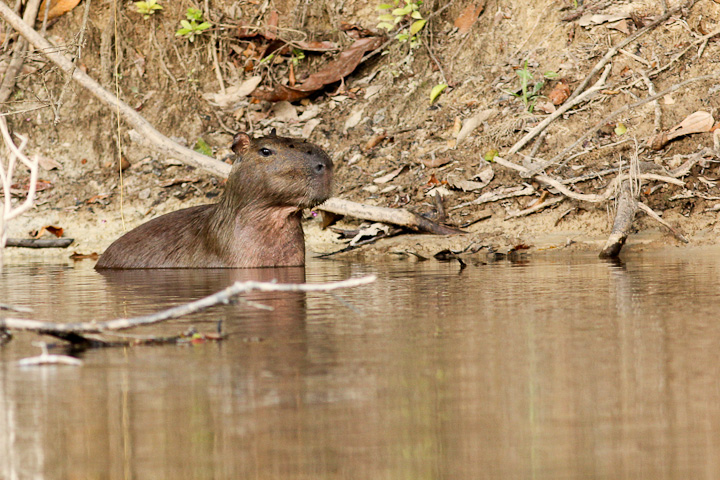
Using the drifting technique, we were able to see several family groups a capybaras, a species I had not previously seen in daylight!
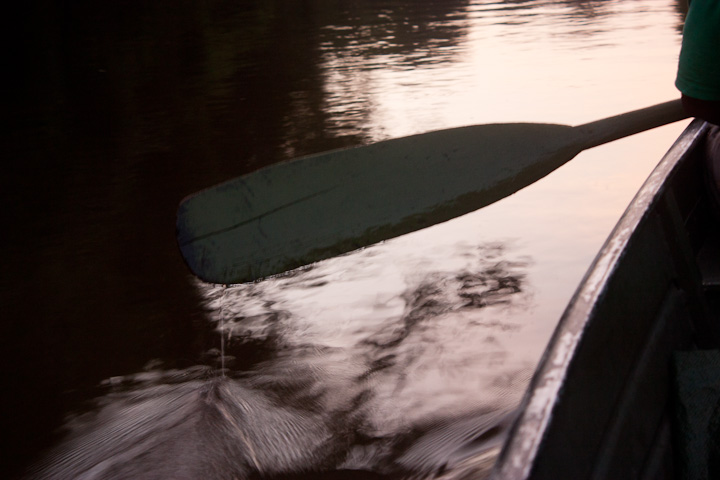
The boat was not as quiet as a canoe, but after days of motoring on the river, this was pretty nice!
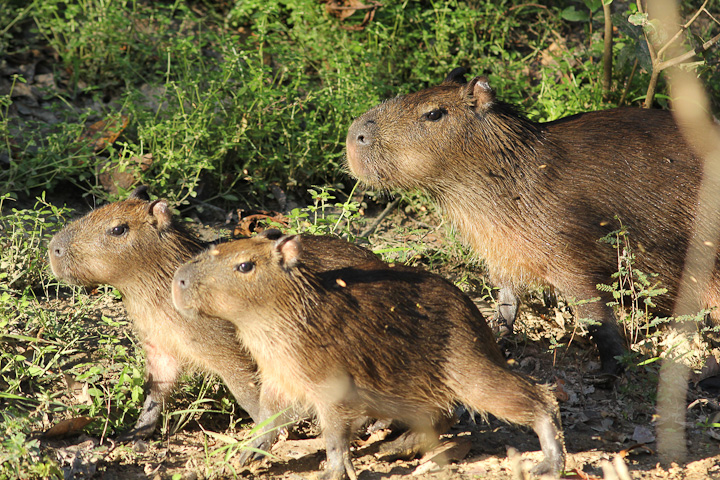
The capybaras were often accompanied by large horseflies. Surprisingly, none of these flew over to us, even when their hosts slipped into the river.
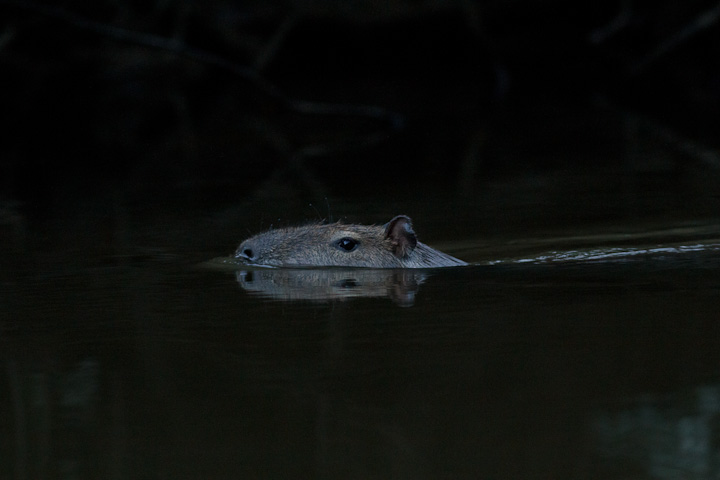
The capybaras take to the river when disturbed, and can even navigate extremely fast currents. I remember many times at Parare in French Guiana being startled by big capybaras splashing into the fast-flowing Arataye. This stretch of river was much more sedate, so allowed us to see the animals swimming quite well.
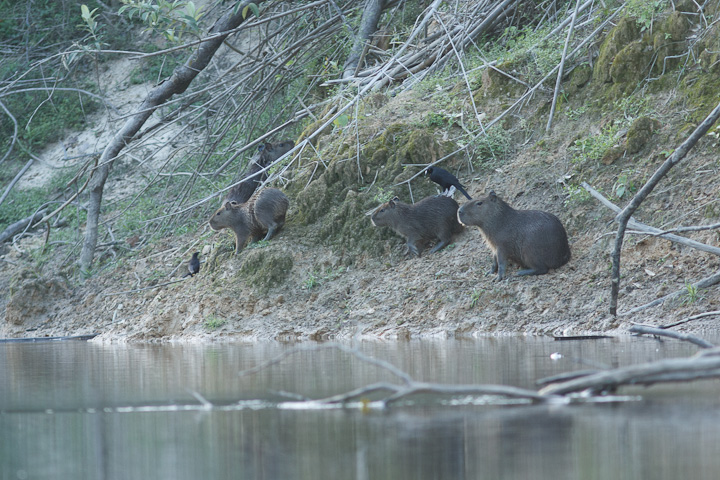
As usual, some of teh capybaras has things perched on them. This is a giant cowbird, which feeds on ectoparasites on the large rodent. Even Black Caracaras do this, but we did not see one doing so.
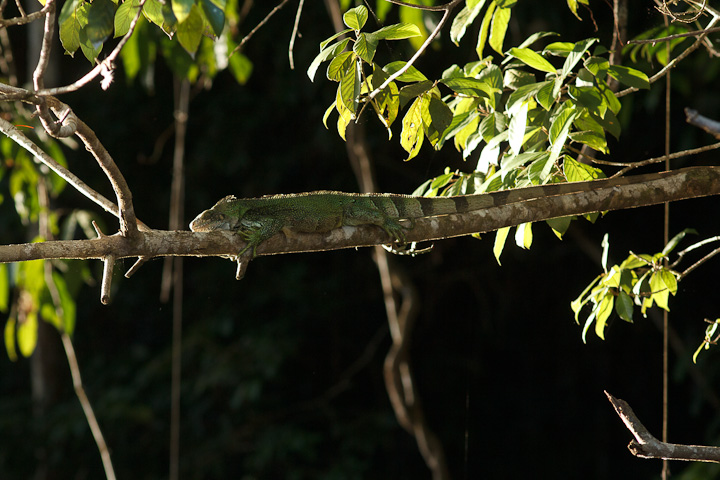
Drifting quietly also allowed us to spy wildlife we might have missed from going to fast: this iguana was well-concealed at most angles.
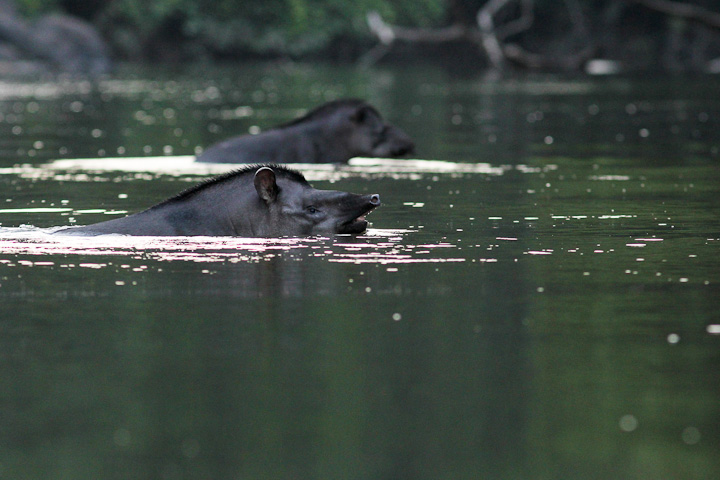
We also saw a number of tapirs, which often come to water to bathe in the morning an evening. These are the largest of the South American ungulates, and are very impressive see!
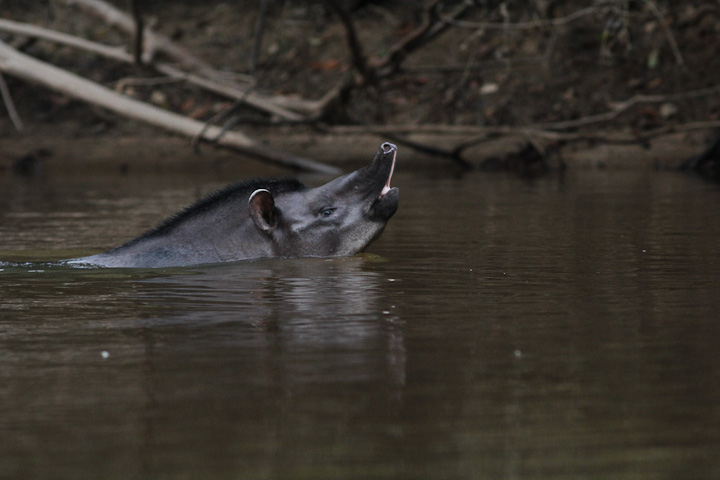
The tapir is a very shy creature in the wild, probably because they are hunted by anybody who can kill them! Unlike capybaras, which breed rapidly, tapir are one of the many species that quickly drop in population with even moderate hunting.
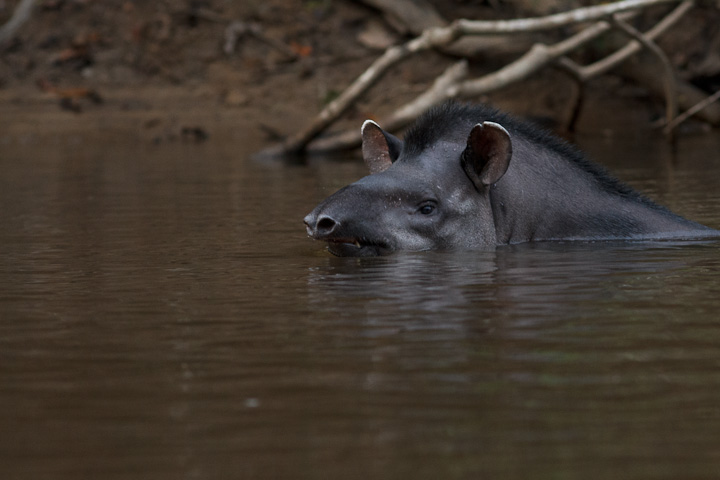
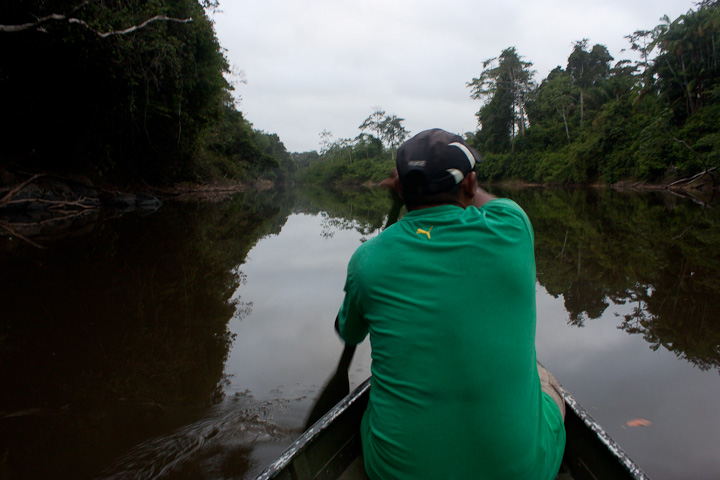
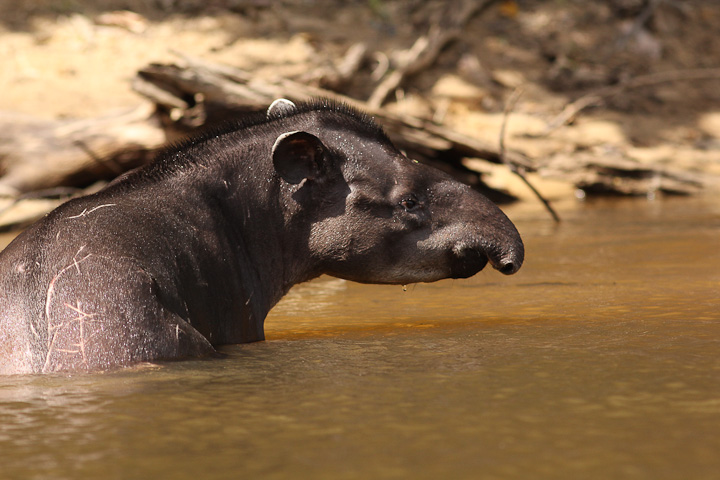
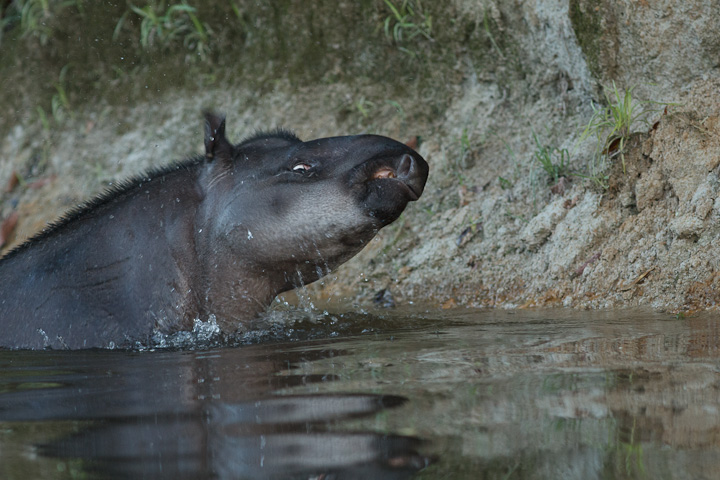
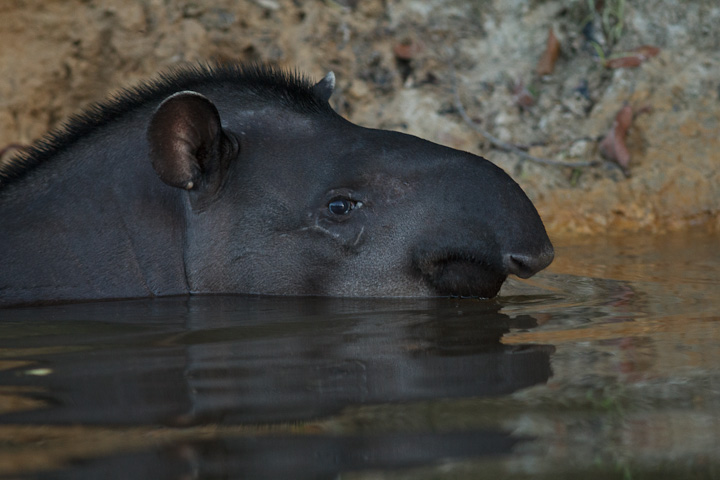
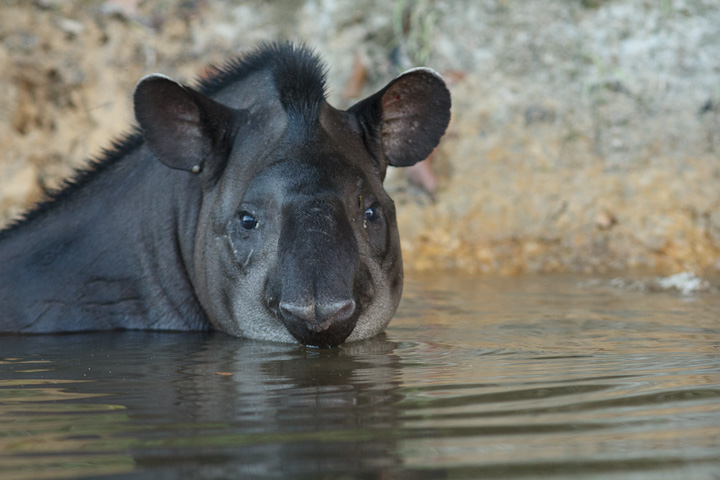
These pictures are fascinating. I never heard of capybaras before, and only the name tapir. These were great pictures. I particularly liked your comments. Felt like I got to know them personally…more than just a generic description. You show not only knowledge but a genuine sensitivity.
Well done!
So…tried to do the survey. Finished up and the captcha thing is NOT working, so I was unable to submit. I seriously tried it 10+ times, even doing the audio version.
Sorry about that! I will see what
is up with that!